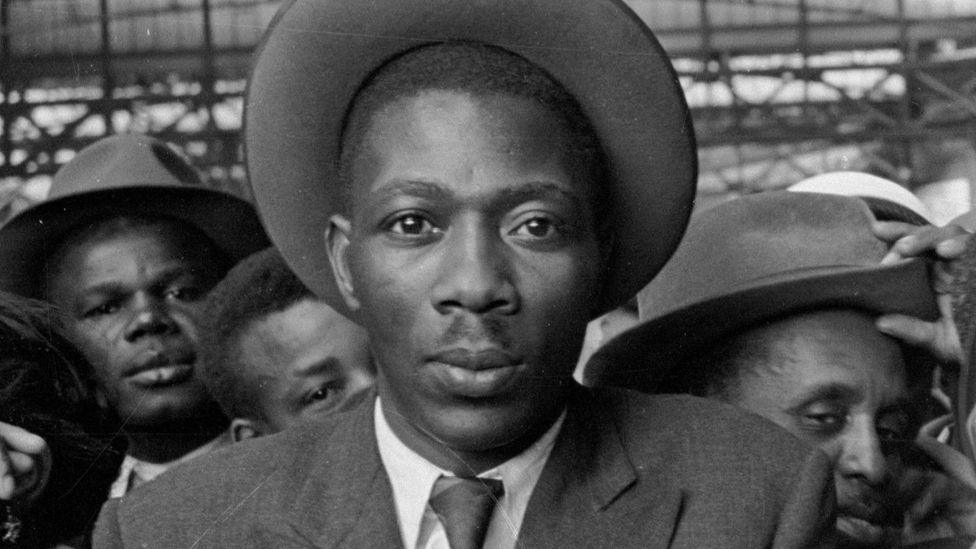Windrush miner fights for compensation
Hear Amos Mullings's story about his journey from Jamaica to Stoke-on-Trent and back again
- Published
A 90-year-old former miner who came to the UK as part of the Windrush generation is fighting for compensation after a five-year battle to return to the country.
Amos Mullings moved from Jamaica to Stoke-on-Trent in 1960, responding to a call to rebuild post-war Britain.
He stayed in the UK until 1997 when he left for the Caribbean. However, when he tried to return to Britain six years later to rejoin family, he was refused permission and it would only later be granted in 2008.
He said that experience had made him feel "bitter" after all of his years working in the UK, while his son said it had also affected his father's mental health and put a strain on the wider family.
"It upset me. It really got me mad, but because I'm a Christian, I kept [my] nerves," Mr Mullings said.
The Home Office said it could not comment on specific cases, but added that those in which people left the country for more than two years were usually rejected.
However, it said they could apply on the basis of strong links to the UK or family connections.
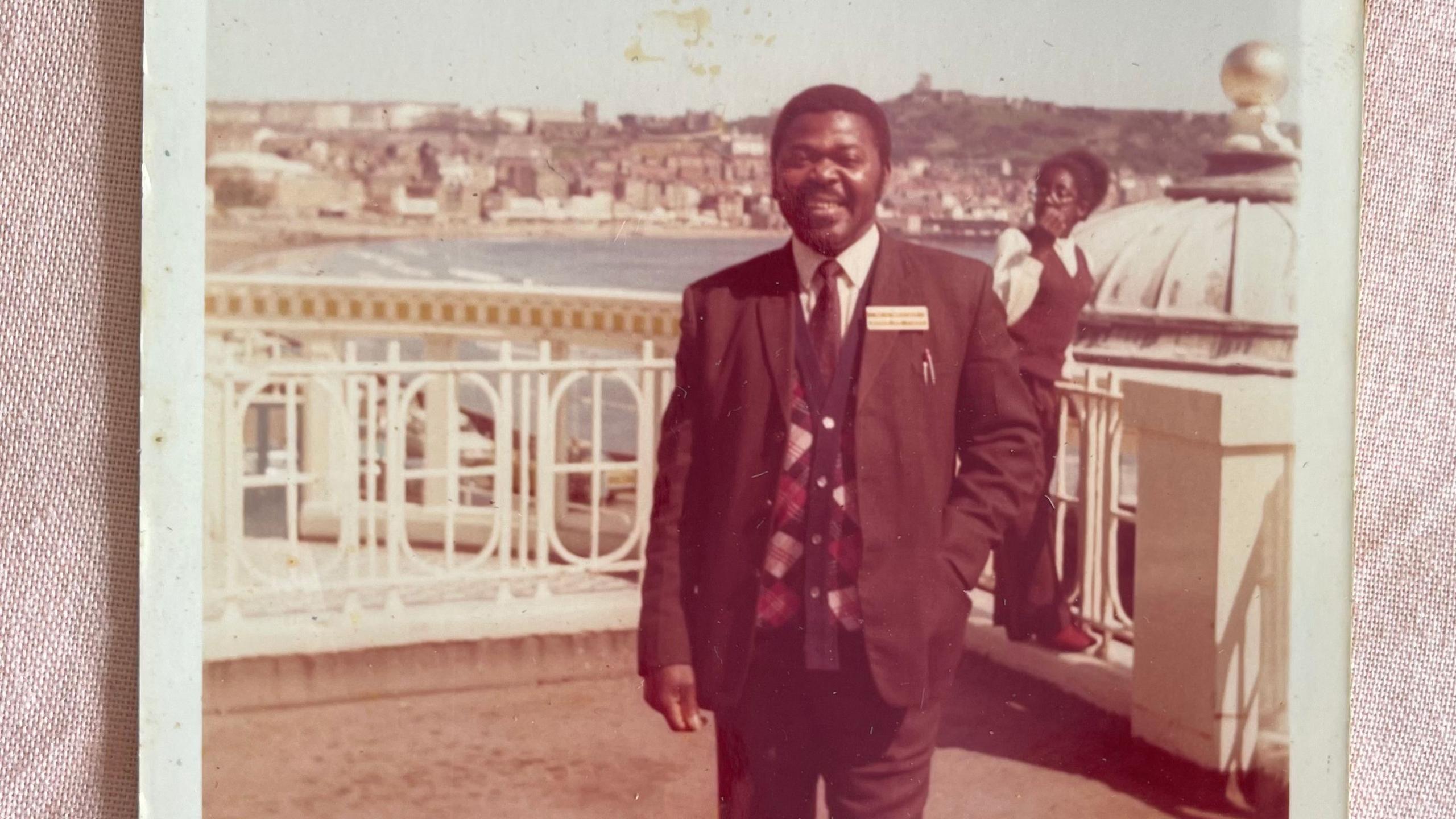
Mr Mullings answered an advert looking for builders to come to the UK but was told he should work down the mine
Mr Mullings and his wife continued to apply and were eventually granted returning residency on the grounds that their son Joe and grandchildren lived in the UK.
He had originally come to Britain as a 25-year-old, expecting to put his skills as a builder to good use.
However, he said a clerk at the labour exchange gave him a job at Kemball Colliery instead, having suggested he "only had experience of building mud huts".
"It was the first time I'd heard about racism," Mr Mullings said.
He continued to work in collieries in the area, even after he broke his back in a mining accident in 1984.
"I couldn't go back to work down the mine," he said, "They found me a light job on the surface."
Keen to provide for his children, he continued to work in the UK until 1997, when many collieries closed, and he returned to Jamaica.
It would be the birth of his grandchildren that drew Mr Mullings back to Britain, but the process turned out to be more testing than he expected, adding that he felt "cheated" by the government.
"They kept turning me down," he said. "But I never gave up."
He said he had always felt a British citizen, but crucially had never applied for it. He would ultimately go on to remedy that in 2015.
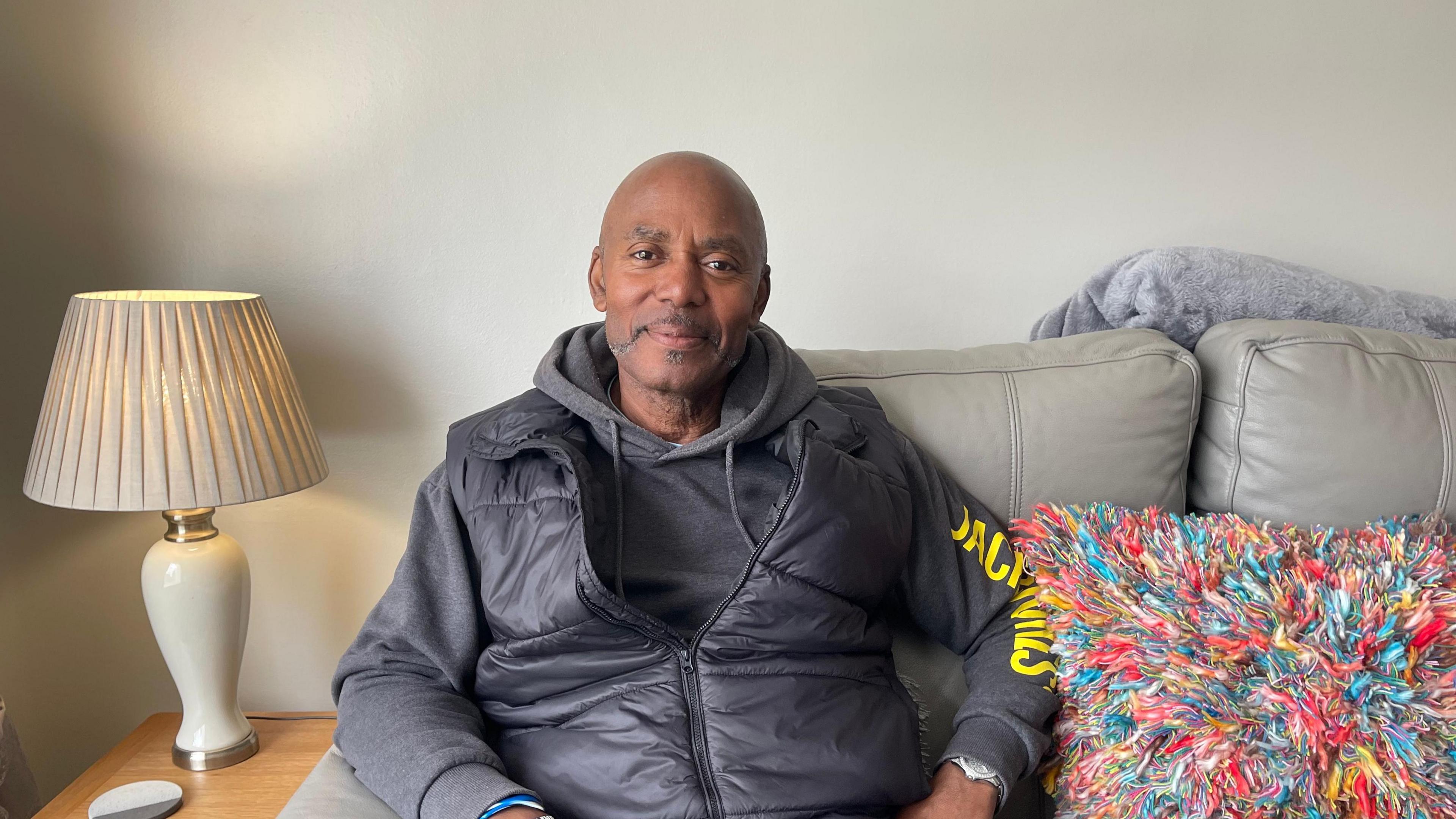
Joe Mullings said the Home Office's decision in 2003 put a strain on his whole family
His son Joe Mullings said the experience of being turned down by the authorities had put a "pressure and a strain" on the whole family. He said his daughters were upset they could not see their grandfather and grandmother.
"The incident and the whole process put a strain on his mental health, causing anxiety and different emotions for my parents," Joe Mullings said.
"It hurts me to see what's happened and how he's been treated.
"Not just my parents, but other people as well and that's the thing that really gets me. It really does.
"They came here and went into work, not to abuse the system. It was a work invitation.
"[My father] was a hard-working man who wanted to provide for his family.
"They were very conscientious that generation, they wanted to build up the country after the war and make Britain the place it's become."
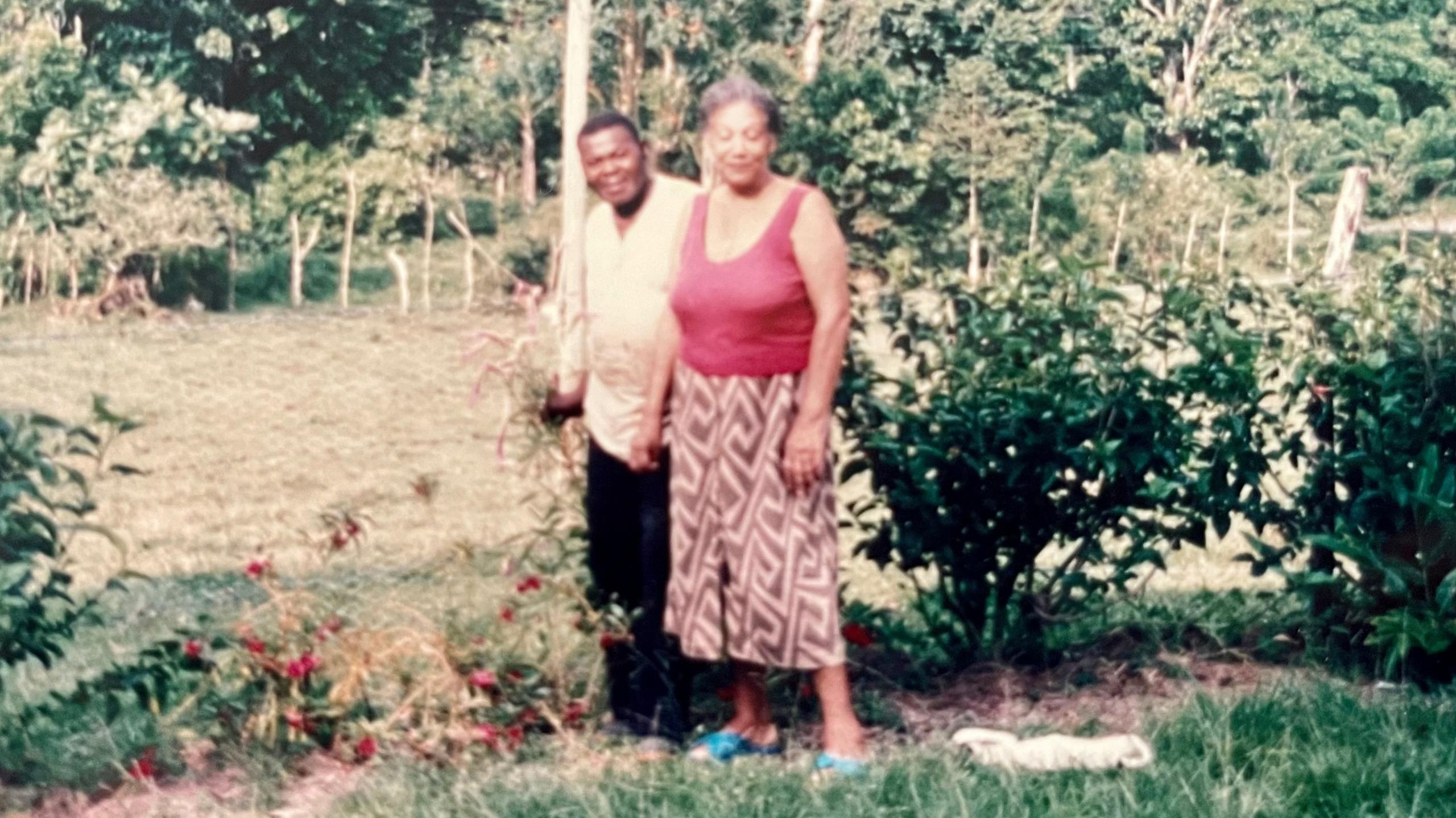
Mr Mullings and his wife, Claudette, returned to Jamaica in 1997
He compared his father's experience to that of thousands of others that were part of the Windrush generation but were threatened with deportation.
Despite answering a call to rebuild Britain in the decades after the war, and granted indefinite leave to remain under legislation introduced in 1971, the Home Office did not keep a record of those people and did not issue paperwork.
In 2019, a Windrush Compensation Scheme was set up by the government with Home Secretary at the time Priti Patel promising at least £10,000 for any successful claimants.
As of May 2025, the compensation scheme has paid over £122m across about 3,300 claims.
Although Mr Mullings had left the UK out of choice, campaigners said his experience when trying to return was not uncommon.
Roland Houslin, who founded Justice for Windrush Generations, said the rules were unclear, and has called for reform to the Windrush Compensation Scheme.
"We should not be treated differently from any other British citizen or individual who has the right to live in the UK," he said.
Mr Mullings said he hoped his case would be given consideration.
Related stories
- Published18 June
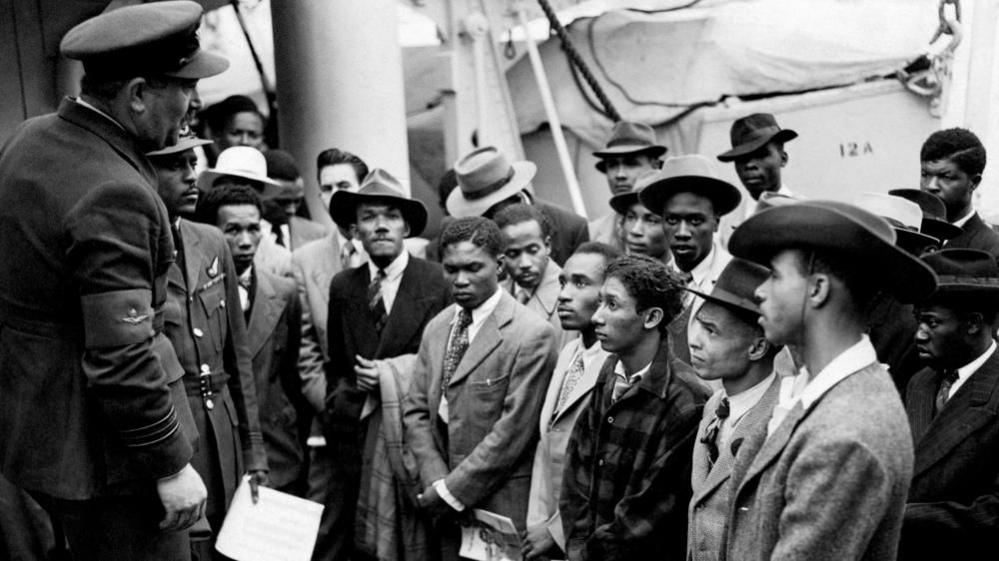
- Published13 March

- Published20 June
